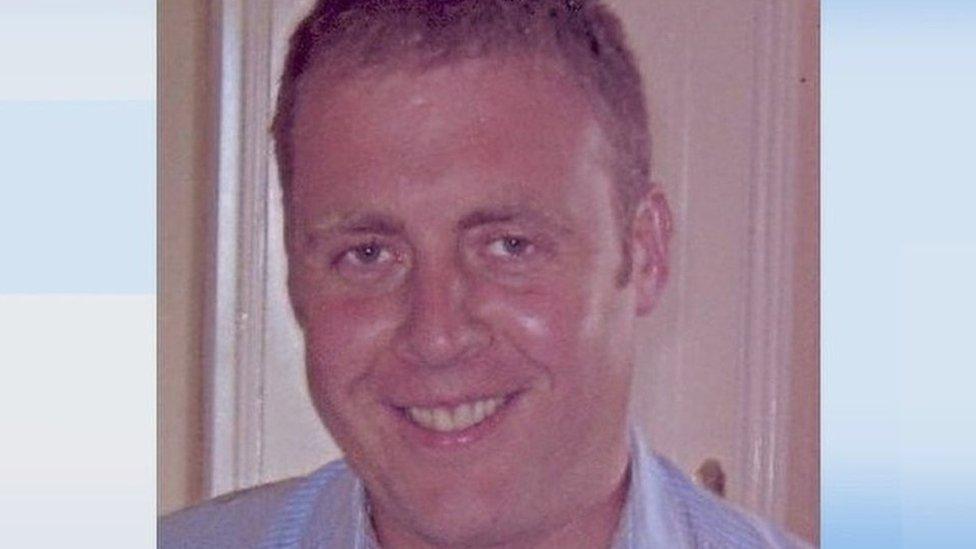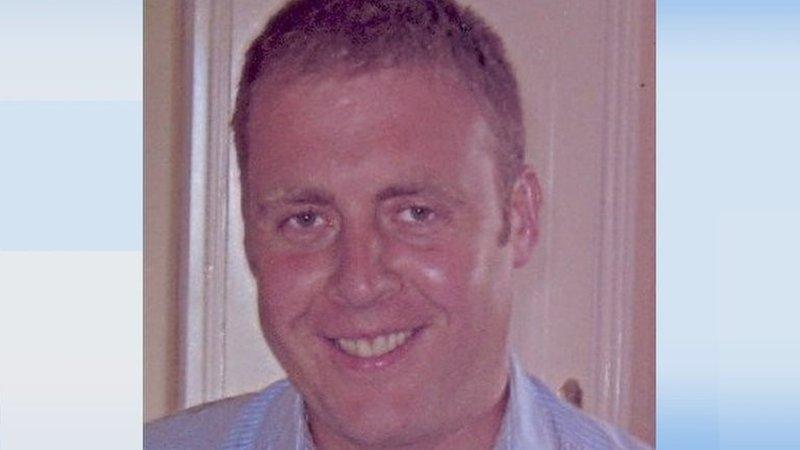Garda Adrian Donohoe: Armed robbery that ended in policeman's death
- Published

Det Garda Adrian Donohoe was shot dead in January 2013
The murder of a garda (police officer) in the Republic of Ireland is so rare and shocking to the public that there is a special offence for it.
Capital murder is a crime that carries a mandatory minimum 40-year sentence.
Detective Garda Adrian Donohoe was shot dead during an attempted credit union robbery close to the border in north Louth on 25 January 2013.
The killing rekindled for many bitter memories of the Troubles - even though there was no paramilitary involvement.
Thousands of policemen and all the leading political figures in the Republic attended Garda Donohoe's state funeral as a show of solidarity with his widow, Caroline - herself a garda officer - and their two young children.
Aaron Brady, 29, the only suspect to stand trial to date, was extradited from New York in 2017 having failed to leave the US when his visa expired.
Charged with capital murder, he strongly denied any involvement in the killing or robbing €7,000 in cash and cheques from the Lordship Credit Union in Bellurgan. He was convicted of the offence at Dublin's Central Criminal Court on Wednesday.
His trial began in January, but was suspended for several weeks because of Covid-19.
Several witnesses gave evidence by video-link from New York including Daniel Cahill, a barman in the city, who said he heard Aaron Brady admit three times that he was a garda killer.

The suspected getaway car was found two days after the shooting in Northern Ireland
Brady denied ever making any admission and described Mr Cahill as "a lying psychopath".
He said Mr Cahill and two other men had assaulted him after accusing Mr Brady of sexual involvement with the girlfriend of one of Mr Cahill's friends.
He told the trial that another New York witness, Molly Staunton, was "mistaken" when she said she had heard him saying he had "shot a cop".
In his evidence, Brady said that on the night of the murder, he had been on his own at a fuel-laundering plant.
Garda and media campaign
He admitted telling lies to gardai about his whereabouts on the night, but said he wasn't lying when he said he had no involvement in the murder.
He told the trial he was the victim of a garda and media campaign.
The trial in front of a jury of six men and seven women heard there was no forensic or DNA evidence to link Brady to the murder - only alleged admissions and circumstantial evidence.
That circumstantial evidence included his and other suspects' phones going dead for two hours around the time of the killing.
It took the jury 20 hours to reach their guilty verdict.
- Published8 January 2019

- Published4 March 2018
